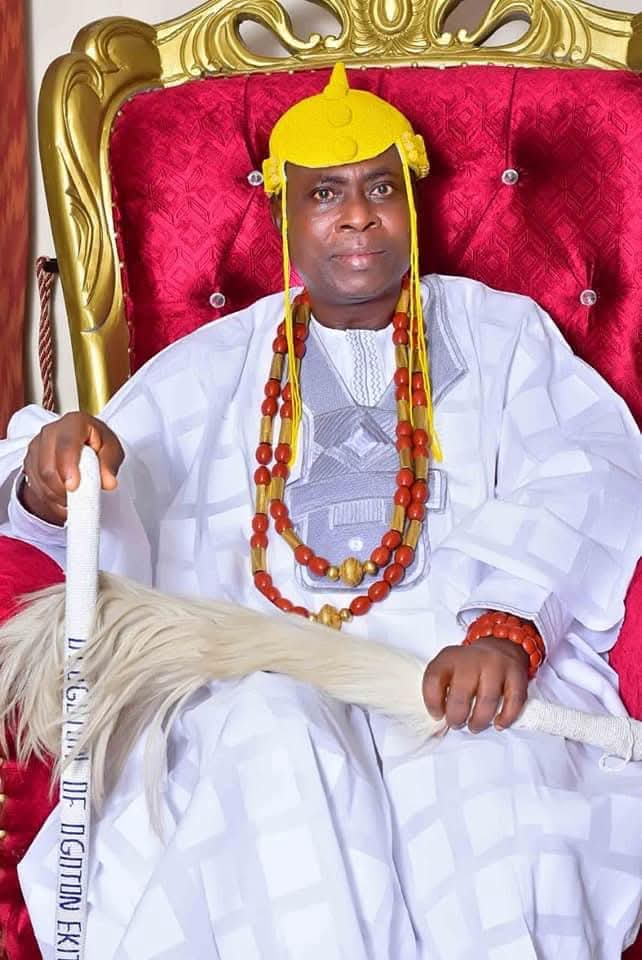Government of Ogotun-Ekiti
Learn about our traditional governance structure, leadership roles, and how our community organizes for progress and development.
Traditional Governance Structure
Our age-long system of traditional administration ensures that all citizens participate at different levels, creating a sense of belonging and maintaining peace, good government, and internal security.
The Ologotun's Authority
The Ologotun of Ogotun-Ekiti serves as the head and custodian of our traditions. His opinion is sought before major decisions are taken, and his authority is final in all matters concerning the town.
Key Responsibilities:
- Head of traditional administration
- Custodian of Ogotun traditions
- Final authority on major decisions
- Chairman of council meetings

Oba Adebayo Michael Adesanmi Atewogboye II
32nd Ologotun of Ogotun-Ekiti • Crowned 2022
Maintaining centuries-old governance traditions
The Iwarafa Council
Six senior chiefs who serve as the eyes and ears of the Ologotun, meeting regularly to make decisions affecting the town
Council Members and Their Quarters
Ogboni
Second in Command
Odofinemi
Council Member
Ejemu
Council Member
Aro
Council Member
Asalu
Council Member
Edinmorun
Council Member
Council Functions
These chiefs meet regularly at the palace under the chairmanship of the Ologotun to make decisions affecting the town. Their decisions are then communicated to the townspeople through the town crier, ensuring transparency and community awareness.
Traditional Chiefs Hierarchy
A structured system ensuring effective governance and community representation
Iharafa
Second tier of chiefs, next to the Iwarafa
The Iharafa join the Iwarafa at meetings on many occasions to deliberate on urgent matters affecting the whole town, providing additional wisdom and perspective to governance decisions.
Elegbe Ulerin
War Chiefs and Security
These war chiefs maintain peace within the town and defend the territorial boundaries by checking invasions or infiltrators. They serve as the traditional security force for our community.
Alabebe Ule Asao
Administrative Chiefs
These chiefs perform similar duties to the Iharafa and Iharawa, serving next in rank to the Ihares. They hold meetings with the Ihares in Chief Ogboni's house, while the Elegbe Ule Asao holds meetings in Chief Asao's house.
Specialized Leadership Roles
Traditional governance includes specialized roles for different community functions
Obinrinle
Women Chiefs
Quarter Leaders:
- Uba: Eyeji (Senior, presides over all women chiefs)
- Okemi: Eyemolu
- Ifakin: Ojumou (Most senior at Ifakin)
- Iloda: Eyewi
Women chiefs in each quarter hold meetings in their heads' houses, with Eyeji presiding over meetings involving all women chiefs in the town.
Aworo
Traditional Priests
Spiritual Duties:
- Ward off pestilence and epidemics
- Consult oracles on behalf of the town
- Perform protective rituals
- Provide spiritual guidance
Odes (Hunters)
Traditional Hunters and Providers
Leadership Structure:
Key Functions:
- Hunting expeditions for ceremonies
- Annual traditional festival support
- Performing rites and appeasing Ogun
- Community protection services
Youth Development System
Ewere System
Though not currently in existence, the traditional Ewere system was designed for youth development, led by the Elewere (OloriEwere). This system prepared young people for adult life through community service.
Traditional Activities:
- Clearing bushes within and around the city
- Opening gutters for proper water flow
- Filling potholes and infrastructure repair
- Fetching firewood for elderly chiefs
Life Lessons
The Ewere period taught essential values that prepared youth for adult responsibilities:
"On discharge from Ewere, graduates were ripe enough to marry and to be made chiefs."
Modern Quarter Administration
Today's governance structure adapts traditional systems to contemporary needs
Uba Quarter
Head Chief:
Saba
Iloda Quarter
Head Chief:
Oluloda
Ifakin Quarter
Head Chief:
Olufakin
Okemi Quarter
Head Chief:
Emininse
Ulo Quarter
Head Chief:
Petu
Council Meeting Schedule
Current Administration:
Each quarter is governed by its head chief who coordinates the affairs of their respective areas. The traditional system has been adapted to work alongside modern administrative structures.
Meeting Structure:
Ologotun in Council meetings held fortnightly at night, maintaining the traditional governance schedule.
Our Governance Philosophy
"Everybody is the keeper of his neighbor" - this simple communal life philosophy has guided our governance for centuries, creating a system where every citizen has a voice and role in maintaining peace and prosperity.
Inclusive Participation
All citizens participate at different levels of governance
Traditional Wisdom
Age-old systems adapted for modern challenges
Community Security
Collective responsibility for peace and development
"This simple communal life continued until it was modified by western civilization, yet our core values remain strong."